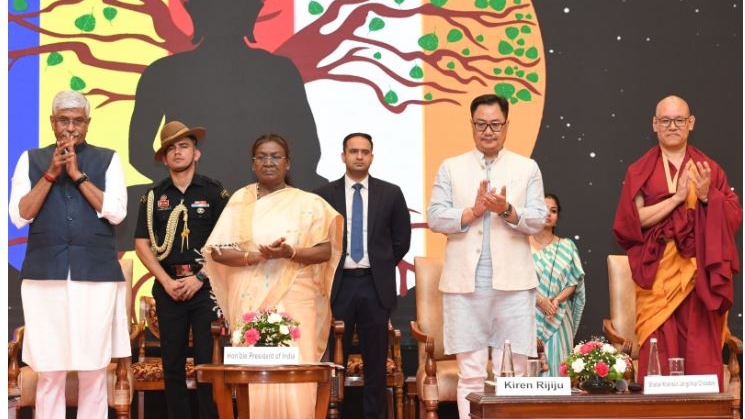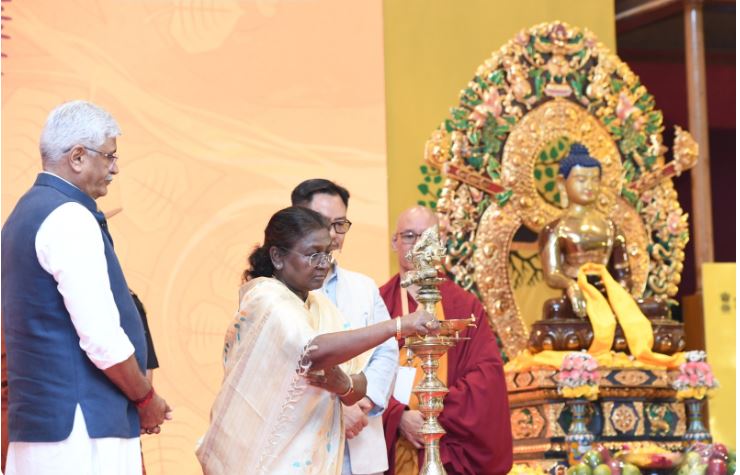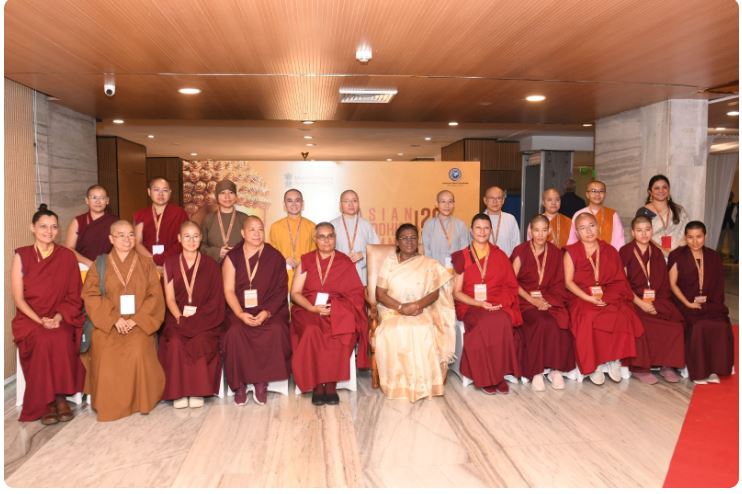

New Delhi , November 5 : President Droupadi Murmu highlighted the relevance of Buddhism in addressing contemporary challenges at Asian Buddhist Summit in New Delhi.

Organized by the Ministry of Culture in collaboration with the International Buddhist Confederation (IBC), the summit underscored the importance of Buddhist teachings in fostering peace and countering sectarianism. Murmu emphasized that India, as a "blessed land of Dharma," has a longstanding legacy of spiritual wisdom that has continually guided humankind toward inner peace and societal harmony.
The President praised the Indian government's recent decision to grant "classical language" status to Pali and Prakrit, acknowledging that this recognition and accompanying financial support will help preserve and revitalize these ancient languages, integral to Buddhist literature and teachings.
Murmu noted the critical role of the Buddhist community in addressing existential crises, including climate change and global conflict. "The various schools of Buddhism show the world how to counter narrow sectarianism," she said, adding that Buddha’s message of compassion—karuna—remains profoundly relevant.

In her first time attending an event of this nature, Murmu called for a broader dialogue on how Buddha Dharma could promote peace across Asia and the world, emphasizing that true peace requires freedom from physical violence and mental afflictions like greed and hatred. She expressed hope that the summit would strengthen regional cooperation founded on the shared heritage of Buddha's teachings.
Discussing Buddhism's evolution, the President acknowledged the diversity within the tradition, which includes the Theravada, Mahayana, and Vajrayana schools. She noted that despite this variety, all branches of Buddhism share a common foundation rooted in compassion and the welfare of all.